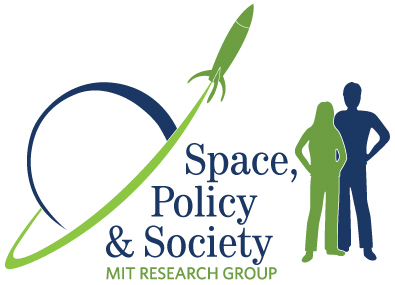
People
David A. Mindell
directs the Space, Policy, and Society Research Group at MIT. He is Dibner Professor of the History of Engineering and Manufacturing, Professor of Engineering Systems, and Director of the Program in Science, Technology, and Society at MIT. His most recent book is Digital Apollo: Human and Machine in Spaceflight.
Scott A. Uebelhart
is a postdoctoral associate in the MIT Program in Science, Technology, and Society with the Space, Policy, and Society research group, focusing on utilization of the International Space Station. Before this Dr. Uebelhart supported space shuttle operations at the C.S. Draper Laboratory. He earned a doctorate at MIT in the Department of Aeronautics and Astronautics in the Space Systems Laboratory.
Slava Gerovich
is a lecturer in the Science, Technology, and Society Program at MIT. He is the author of From Newspeak to Cyberspeak: A History of Soviet Cybernetics (2002) and numerous articles on Russian science and technology. He is working on a book on the history of automation in the Soviet space program.
Jeff Hoffman
is Professor of the Practice in the Department of Aeronautics and Astronautics at MIT. An astronomer, Hoffman was a NASA astronaut from 1979 to 1997 and flew on five Space Shuttle missions, including the Hubble Space Telescope repair in 1993.
Ephraim Lanford
is a graduate student in MIT's Technology and Policy Program studying space systems engineering and policy.
John Logsdon
is Charles A. Lindbergh Chair in Aerospace History at the National Air and Space Museum of the Smithsonian Institution I, Professor Emeritus of Political Science and International Affairs, The George Washington University, and Distinguished Visiting Professor in the Space, Policy and Society research group at MIT.
Teasel Muir-Harmony
is a graduate student in MIT's History, Anthropology, and Science, Technology, and Society program. Her work focuses on the history of space exploration and the role of science and technology in U.S. foreign policy.
Dava Newman
is Professor of Aeronautics and Astronautics, Professor of Engineering Systems, and Director of the Technology and Policy Program at MIT. Her expertise is in multidisciplinary research that combines aerospace biomedical engineering, human-in-the-loop modeling, biomechanics, human interface technology, life sciences, systems analysis, design, and policy.
Sherrica Newsome
is a graduate student in the Engineering Systems Division at MIT under the Technology and Policy Program. Her research interests include improving and strengthening international space collaborations.
Lawrence McGlynn
is the president and chairman of Insurance Services of New England, LLC. As a spaceflight enthusiast, he serves on various educational and museum board to stimulate education for children in math and science and to document and preserve the history of human spaceflight.
Rebecca Perry
is a graduate student in MIT's History, Anthropology, and Science, Technology, and Society program. She was a Knight Science Journalism Fellow at MIT, and has worked as a visual journalist with The Los Angeles Times and The New York Times.
Asif Siddiqi
is Assistant Professor of History at Fordham University. He specializes in the history of science and technology and modern Russian history. He has written several books on the space race between the U.S. and the USSR during the Cold War. He is curently a visiting fellow in the Space, Policy, and Society Research Group at MIT, working on a history of the Indian space program.
Zakiya A. Tomlinson
is a masters candidate in the MIT Aeronautics and Astronautics department. Her research with the Man-Vehicle Laboratory focuses on astronaut training and telerobotics.
John Tylko
is Vice President of Business Development at Aurora Flight Sciences, Inc. He is a lecturer in MIT's Department of Aeronautics and Astronautics and is a recipient of MIT's Founder's Award recognizing entrepreneurship.
Annalisa L. Weigel
is Jerome C. Hunsacker Assistant Professor of Aeronautics and Astronautics and Engineering Systems at MIT. Her research interests include policy and economics, aerospace systems architecting and design, innovation and change dynamics in the aerospace industry, and systems engineering.
Laurence R. Young
is the Apollo Program Professor of Astronautics and Professor of Health Sciences and Technology, was a Principal Investigator or Co-I on 7 space shuttle missions and an Alternate Payload Specialist on STS-58. The Founding Director of the National Space Biomedical Research Institute, he is a member of both the National Academy of Engineering and the Institute of Medicine of the NAS.